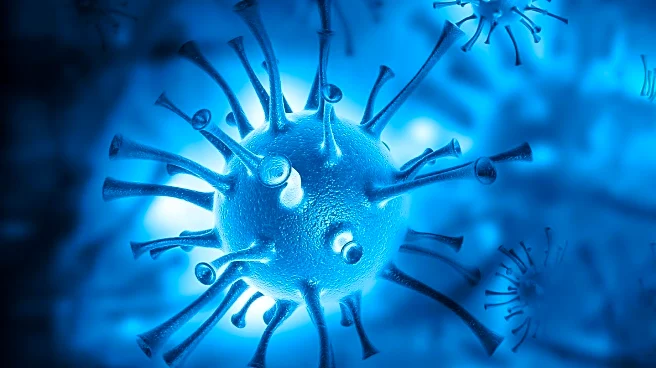What is the story about?
What's Happening?
Recent studies have identified rare but potent neutralizing antibodies against the malaria parasite antigen RH5, which are naturally acquired and inhibit parasite growth. These antibodies, including those characterized by Alanine et al. in 2019 and Wang et al. in 2024, show promise in enhancing malaria-neutralizing antibodies. The discovery of basigin as the erythrocyte ligand for PfRH5 further supports the potential of targeting RH5 for malaria vaccine development. This research highlights the importance of RH5 in the invasion process of Plasmodium falciparum, the parasite responsible for malaria, and suggests that targeting this antigen could lead to effective vaccine strategies.
Why It's Important?
The identification of these antibodies is significant as it opens new avenues for malaria vaccine development, potentially leading to more effective prevention strategies against a disease that affects millions globally. By targeting the RH5 antigen, researchers can develop vaccines that elicit strong immune responses, potentially reducing the incidence of malaria. This could have profound implications for public health, particularly in regions where malaria is endemic, and could contribute to global efforts to eradicate the disease.
What's Next?
Further research and clinical trials are necessary to validate the efficacy of RH5-targeted vaccines in humans. Researchers will likely focus on optimizing vaccine formulations to ensure they provide robust protection against various strains of Plasmodium falciparum. Collaboration between international health organizations and governments will be crucial to facilitate the development and distribution of these vaccines, especially in malaria-prone areas.
Beyond the Headlines
The discovery of basigin as a receptor for RH5 highlights the complex interactions between malaria parasites and human erythrocytes. Understanding these mechanisms could lead to broader insights into parasite biology and host-pathogen interactions, potentially informing the development of treatments for other parasitic diseases.

















